
Lime juice, like other acidic ingredients such as vinegar or lemon juice, brings sparkle to foods as varied as cakes and cookies, pasta, risotto, soups and salads. But too much lime juice results in flavor that is both overly bitter and overly sour. Luckily, there are plenty of ingredients and cooking techniques that balance the taste of lime juice with other ingredients so you can put its refreshing flavor to the best use.
A Spoonful of Sugar
If you've added too much lime juice to your dish or cocktail, just a bit of sugar, honey, maple syrup, white chocolate or caramel sauce, stirred in or drizzled on top, will balance the bitterness. The sugar won't remove the taste of the lime juice, but rather will distract your taste buds with complexity of flavors so you won't notice the bitterness as much. You may not even taste the sugar directly, but the dish will simply taste better.
Pass the Salt
Salt is a natural counterbalance to sourness -- think of the salt around the rim of your margarita glass. Salt works in the same way as sugar to deepen the flavor of dishes and reduce your perception of both bitterness and sourness. Salt is also a flavor-enhancer, making savory foods taste better. If your salad dressing or marinade tastes too bitter from lime juice, begin by adding just a pinch more salt and then tasting the dish before adding more.
A Little Fat Can Do Some Good
Rich, fatty foods provide relief from acidic and bitter foods, so a pat of butter, a dollop of sour cream or a drizzle of olive oil poured over foods that have too much lime juice may help reduce the harsh flavor you taste. Likewise, lime and lemon juice are frequently added to rich dishes, such as cheesecake or cheesy risotto, to cut the richness of those dishes.
Scientifically Speaking
There is no scientific explanation for lime juice losing some of its bitterness when it sits at room temperature for four to 10 hours, but cocktail connoisseur Dave Arnold conducted blind taste tests that found this to be the case. On the other hand, science does explain why lime juice becomes more bitter through a process called enzymatic bittering. Chemicals in juice left out for longer than 10 hours reacts with oxygen to produce the bitter chemical called limonin.
Related Articles

How Can I Make Curry Taste Less Bitter?
How to Remove a Salty Taste From Sliced ...
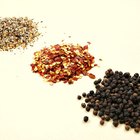
Accent Seasoning & Its Benefits

What Cuts the Taste of Salt?
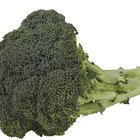
What Vegetables Have Citric Acid?
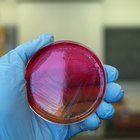
Uses of Saltpeter in Food
Solutions for Too Much Heat in a ...
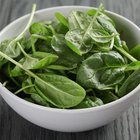
Does Fresh Spinach Cause Bloating?

How to Gargle With Sea Salt

How Can I Counteract the Sourness of a ...

Can I Substitute Salt Pork for Smoked ...
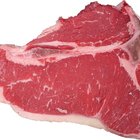
The Effect of Salt on the Tenderness of ...

How to Make Salt Brine

How to Cook a Whole Fish Jamaican Style
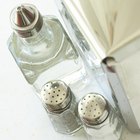
Uses for White Wine Vinegar

How to Reduce the Bitterness of Escarole
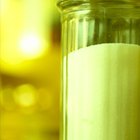
Salt Vs. Non-Iodized Salt

Difference Between Peppermint Extract & ...

What Is Agave Syrup?
What Kinds of Food Do You Serve With ...
References
- Serious Eats: Cocktail Science
- The Flavor Bible; Karen Page and Andrew Dornenburg
- The Science of Good Cooking; Editors at America's Test Kitchen and Guy Crosby
Writer Bio
Susan Lundman began writing about her love of cooking, ingredient choices, menu planning and healthy eating after working for 20 years on children's issues at a nonprofit organization. She has written about food online professionally for ten years on numerous websites, and has provided family and friends with homemade recipes and stories about culinary adventures. Lundman received her M.A. from Stanford University.
Photo Credits
Creatas/Creatas/Getty Images